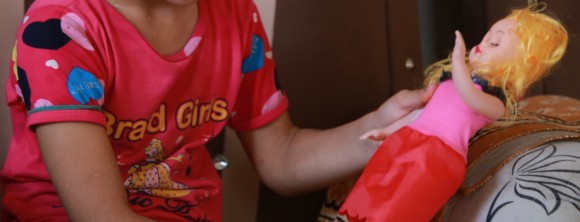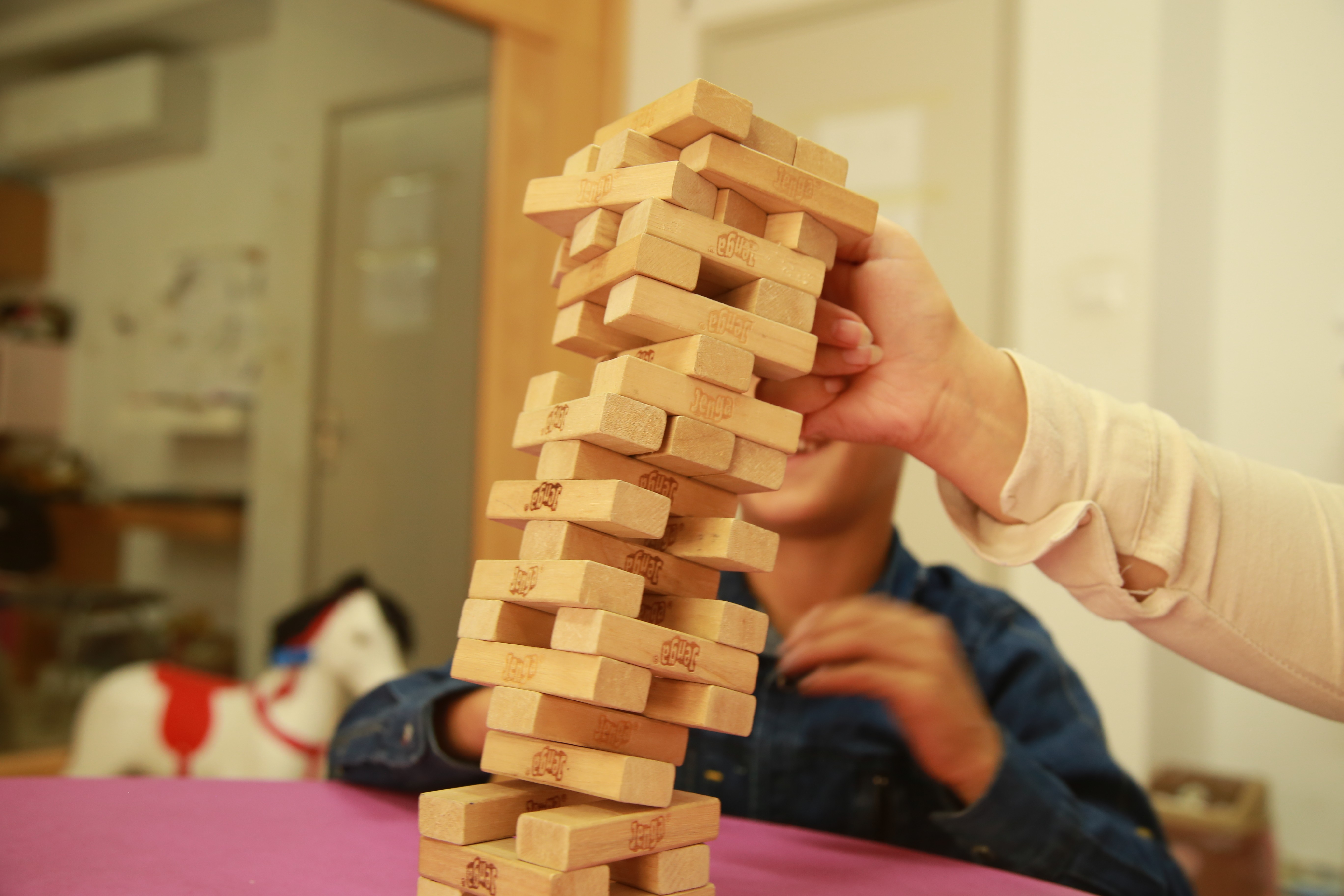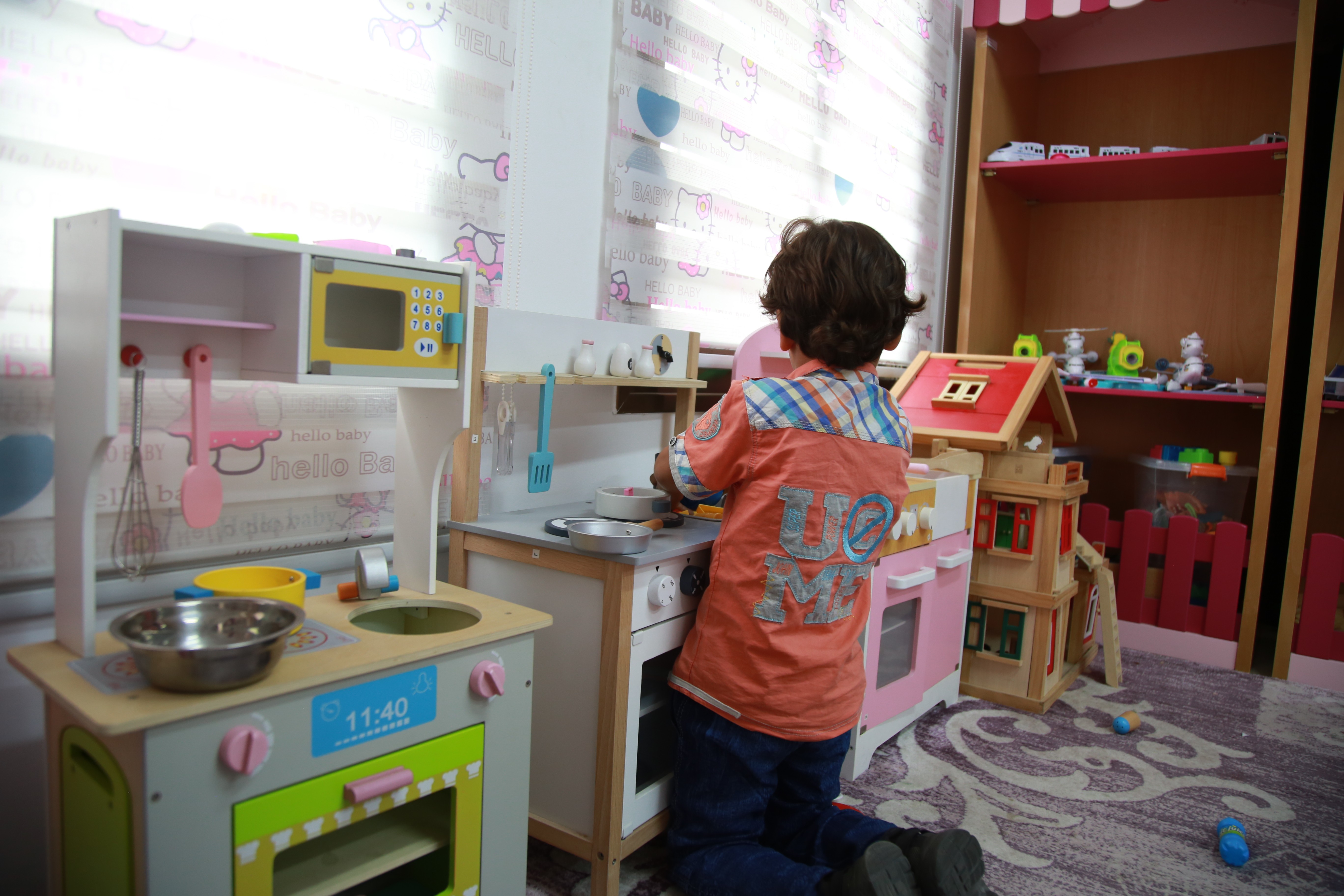
“Lama Wins Battle Against PTSD And Gets her Dream Toy”
It was only a few days before the end of Ramadan month and the arrival of Eid ul-Fiter, one of the two major festivals celebrated by millions of Muslims across the world. The streets were teeming with people, vendors and shoppers who were getting ready for the big event and make the best of the season.
Through the mess of the shopping spree, Fatemah was holding tight her Daughter’s hand, Lama, so as not to lose her. The 7-year-old was trying to squirm free and change destination to the eye-catching display of toys heaping on stalls along the street. A Barbie doll was her quest.
“I promise I’ll buy you one when I have some extra money, but right now we can’t afford it,” said heavily pregnant Fatemah who was trying to placate her daughter as she was trudging back home through the sandy agricultural roads, in Beit Hanoun Town, northern the Gaza Strip.
Though, Lama was still pestering her. “If I can’t have it at the Eid, when can I?” she said to her mother, with a tearful face.
However, Lama’s craving for the doll together with her appeals suddenly disappeared. So did her mother’s feeling of tiredness and heaviness. They both ran for dear life as shells, out of nowhere, pounded her in-laws’ farm, where they were passing by.
Torn bodies, blood pools, injured people and screams have turned the festive atmosphere into a calamitous one.
“They died! They die!” Lama hysterically yelled.
The incident was the beginning of an 11-day military offensive launched by Israel against the Gaza Strip, in May 2021. It was the bloodiest and most aggressive operation the Gaza Strip has ever experienced though shorter in time compared with previous ones.
Streets, whether in city centres, built-up residential areas or elsewhere, were carpet bombed by fighter jets, causing a horrific amount of psychological and physical damage to the populous community of Gaza.
On the fifth day of the military offensive, Lama and her family were still trying hold themselves together. They had just lost five members from their extended family in front of their very eyes. However, the state of distress and insecurity was not giving them the opportunity to.
Shells continued to pour in where they lived, and at some point, as the bombardment got so intensive, Lama and her family, as well as the neigbours, had to flee.
Again, the little girl was directly exposed to another traumatic event, seeing her family’s house being flattened to the ground by an air strike as they moved about 50 yards away from it.
Other houses were also being struck on their escape, and Fatema, was struggling to breathe in the middle of smoke clouds.
Lama was already shivering out of fright. Everyone’s life was on the line.
Then, worse came to worst when her mother passed out from the effect of the tear gas canisters dropped from drones. She thought she had lost her mother.
As the family settled down in the grandfather’s house, they started noticing significant changes on Lama’s behaviours. She started pulling her hair to the point that big patches on her scalp started showing. She started suffering from highly frequent nightmares. Besides, the family noticed that she had become so attached to her parents, and she feared going out to play.
At the beginning it never occurred to the family that these changes were the reflection of something psychological, not before they were visited by GCMHP PFA team, which oriented the family on lama’s case.
The 7-year-old was immediately referred for Gaza Community center for specialized intervention, where she underwent a therapy plan that included play therapy, draw therapy, individual counselling and family counselling.
In the play therapy room, lama saw a doll that looked like the one she was eager to have. She loved playing with it.
During the intervention, her therapist, Kholoud Abu Hijayer noticed that the little girl lacked self-confidence. She thought she was less beautiful than her sisters and therefore she was more vulnerable and more fragile.
“Self-confidence is a significant element of inner strenghth that we can build upon to help someone. I worked with lama and the family on this part in order to boost her resilience,” said Abu Hijayer.
After 7 session, Lama started improving. One big sign was that her hair grew back. The other symptoms also started receding.
“There is nothing more relieving for parents than seeing one’s child safe and secure. Her feeling of insecurity caused us a lot of psychological pain. Now we feel so relieved and secure that she feels she is ok,” Fatema said to her daughter’s therapist, Abu Hijayer, who presented Lama with a doll as a gift during her follow-up home visit to the family.
Holding her brand-new doll, lama giggled with excitement as her parents were watching her reaction with a contentment look on their faces.



Read Comments
Steven Rich
March 10, 2019Omnis iste natus error sit voluptatem accusantium nam libero tempore, cum soluta nobis est eligendi optiocumque nihil impedit quo minus id quod maxime.
Van Wimbilton
March 10, 2019Natus error sit voluptatem accusantium nam libero tempore, cum soluta nobis eligendi optio cumque nihil impedit quo minus id quod maxime.